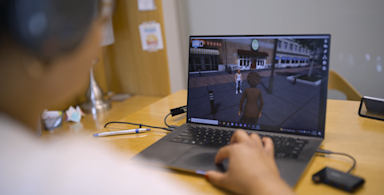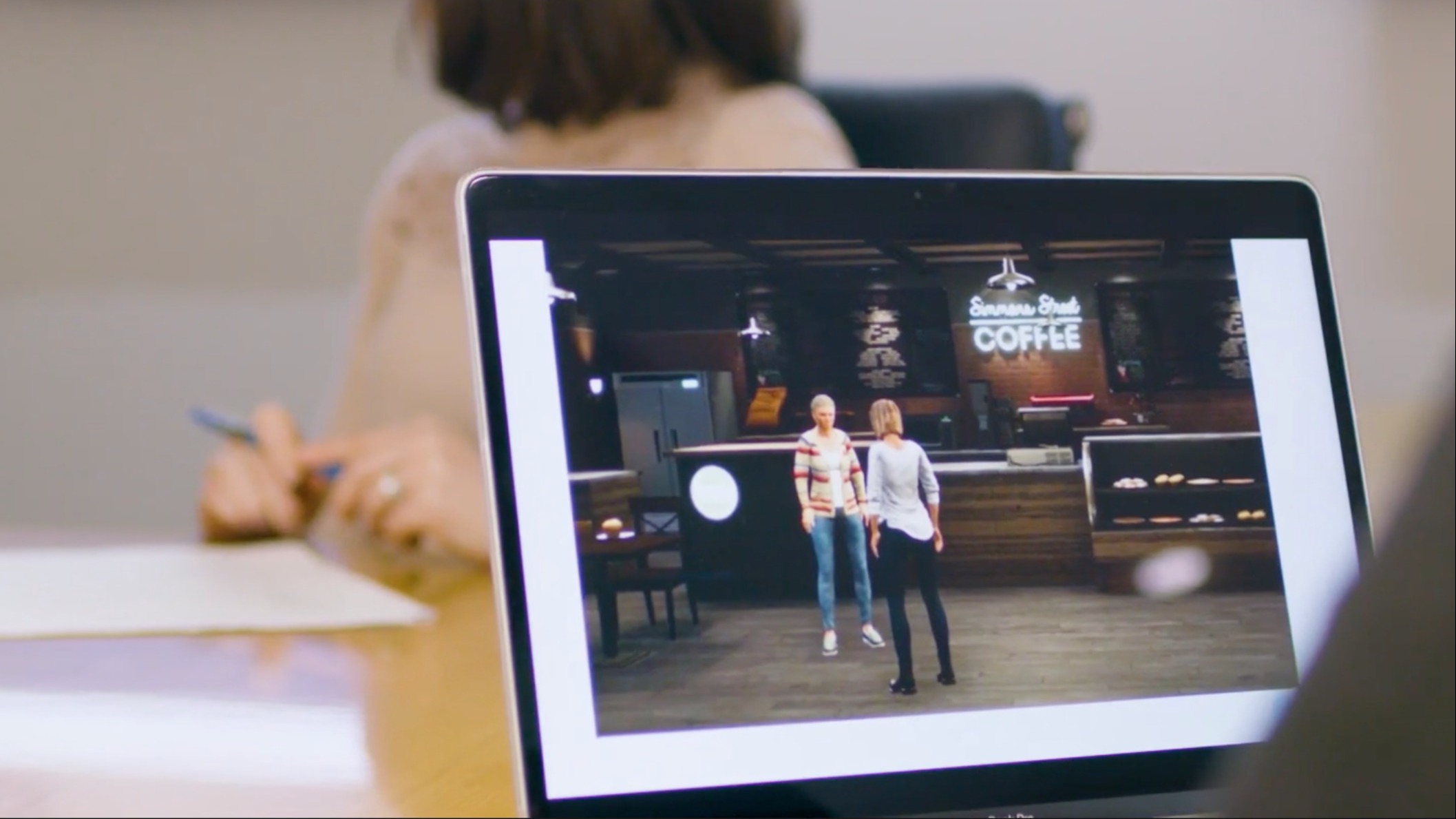
Teaming With AWS To Grow Charisma Using Generative AI and Cloud Gaming
AWS for Games Blog
Emily McKinzie
Share this article

Sandra Bond Chapman, PhD
Chief Director Dee Wyly Distinguished Professor, School of Behavioral and Brain Sciences Co-Leader, The BrainHealth Project
Related Information

Charisma Virtual Social Training: A Digital Health Platform and Protocol
This pilot study investigates the impact of a low immersion virtual reality (LIVR) intervention upon social skill challenges in youths with autism spectrum disorder (ASD) or another diagnosis. Findings suggest participants experienced improved recognition of emotions, social cues and self-belief following training in the LIVR environment.